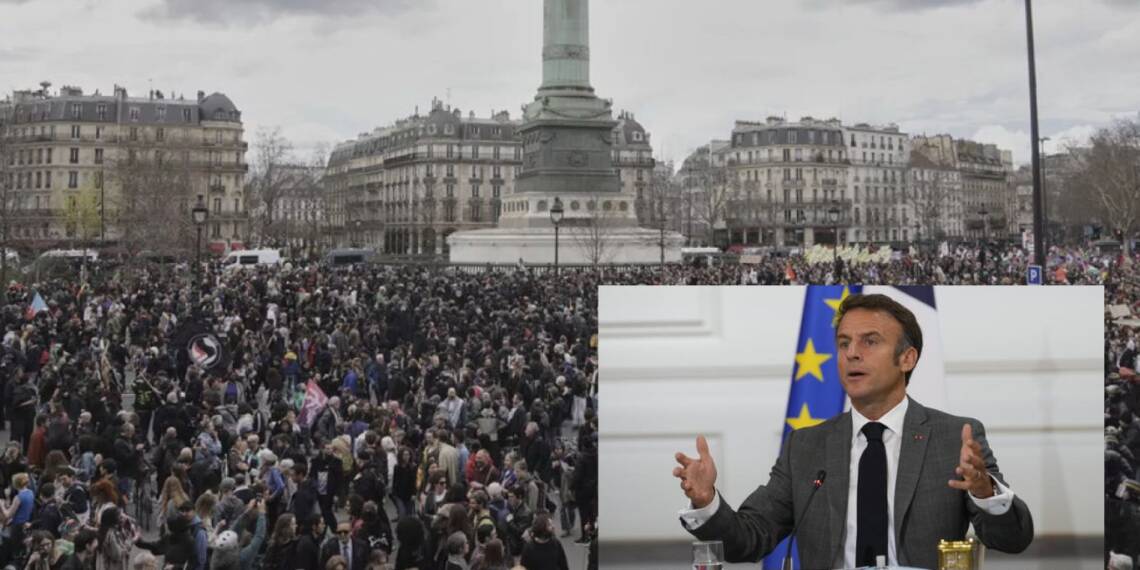French President Emmanuel Macron is running out of time. With mounting domestic unrest, controversial foreign policy decisions, and a growing disconnect between his government and the people, his grip on power is slipping. Recent events surrounding Marine Le Pen’s conviction and the backlash against Macron’s Ukraine policies only serve to highlight how precarious his position has become.
Marine Le Pen’s recent conviction on embezzlement charges is undeniably significant. Found guilty of diverting over €4 million in European Parliament funds to pay party staff, she now faces a four-year prison sentence (two years suspended) and a five-year ban from running for office. This effectively crushes her 2027 presidential ambitions—at least for now.
While the ruling is a legal matter, the political implications cannot be ignored. Le Pen’s party, the National Rally (RN), immediately went into crisis mode. High-profile members, including party president Jordan Bardella, rushed to strategize their next move.
Pan EU Unrest Against Macron
Meanwhile, the European far-right wasted no time condemning the ruling. Hungary’s Viktor Orbán and the Netherlands’ Geert Wilders publicly expressed outrage, framing it as an attack on democracy.
For Macron, this could have been a moment of quiet victory—one less formidable opponent in 2027. Instead, it has only fueled further division. The conviction is seen by many as politically motivated, reinforcing the belief that the French establishment is using judicial power to suppress its opponents.
Le Pen’s appeal will drag this controversy on, ensuring that Macron’s government remains embroiled in yet another scandal.
But, if Macron thinks Le Pen’s legal troubles would shift focus away from his own missteps, he was sorely mistaken. Just days before the ruling, the streets of Paris erupted in protests against his latest announcement: an additional €2 billion in military aid for Ukraine. The package includes advanced surface-to-air missiles, armored vehicles, and drones—a clear escalation in France’s involvement in the conflict.
Leave NATO! Says Paris
Demonstrators, many affiliated with nationalist and right-wing movements, carried signs demanding an end to France’s military aid to Ukraine. The chants of “Macron, we don’t want your war!” and “Let’s quickly leave NATO!” echoed through the city. For many French citizens, Macron’s aggressive stance on Ukraine is an unnecessary provocation, one that could entangle France in a larger conflict.
His insistence on positioning France as a leader in European defense is proving to be a dangerous gamble. The idea of sending Western troops as a NATO-led “reassurance force” in Ukraine has been met with skepticism, even among France’s allies. Russia has outright rejected the notion, warning that such a move would be seen as a direct provocation. If Macron is attempting to carve out a legacy as a European wartime leader, he is failing—both at home and abroad.
Macron’s presidency is reaching a breaking point. His approval ratings continue to waver, and his ability to push forward a coherent domestic agenda is crippled by public opposition. The Le Pen ruling and the Ukraine protests are not isolated events; they are symptoms of a broader issue: a president who is increasingly out of touch with the people he governs.
With the next presidential race in 2027, Macron’s window for redemption is closing. Whereas, on the international front, Trump is creating a headache for the whole European bloc. If he does not change course, he risks not only political irrelevance but also fueling the very populist movements he seeks to contain.








